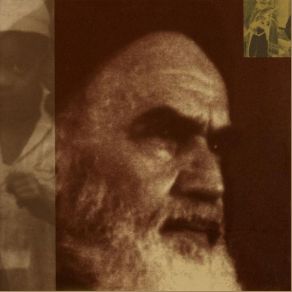Abu Nidal/Coup D'Etat
Download links and information about Abu Nidal/Coup D'Etat by Muslimgauze. This album was released in 1987 and it belongs to Ambient, Electronica, Techno, Jazz, Dancefloor, World Music, Dance Pop genres. It contains 11 tracks with total duration of 01:11:57 minutes.

|
|
|---|---|
| Artist: | Muslimgauze |
| Release date: | 1987 |
| Genre: | Ambient, Electronica, Techno, Jazz, Dancefloor, World Music, Dance Pop |
| Tracks: | 11 |
| Duration: | 01:11:57 |
| Buy it NOW at: | |
| Buy on iTunes $9.99 | |
Tracks
[Edit]| No. | Title | Length |
|---|---|---|
| 1. | Abu Nidal | 7:30 |
| 2. | Green Is the Color of the Prophet | 8:29 |
| 3. | Fatwa | 6:22 |
| 4. | Tabula Rasa I | 6:22 |
| 5. | Tonton Macoutes I | 6:19 |
| 6. | Emeute | 6:16 |
| 7. | Degage | 5:35 |
| 8. | Sapere Aude | 3:42 |
| 9. | Jarnail Singh | 8:53 |
| 10. | Tabula Rasa II | 6:13 |
| 11. | Tonton Macoutes II | 6:16 |
Details
[Edit]The rougher, much more upfront drumming at the start of "Tabula Rasa" marks this album immediately as a slightly harsher Muslimgauze effort; while not as notably distorted as later releases, this steps away from the smoother sounds heard earlier the same year on Abu Nidal (though combining the initial percussion with a straightforward 4/4 disco pulse is at once perversely amusing and marvelously catchy). What makes the album stand out all the more is the curious lack of Palestinian/Islamic-inspired titles or a statement of purpose; if anything, the album perhaps refers to the contemporaneous situation in Haiti, with song titles mostly in French and one specifically referring to the "Tonton Macoutes," the gangs of armed thugs used by the Duvalier government to keep the populace in check. For all this, though, it's still Muslimgauze at base, and the music is recognizably his, if not quite as distinct here than elsewhere; in spots his knack for compelling music via repetition deserts him, resulting in grooves that go on far too long. When he's spot on, though, it all works wonderfully, as with the electronic/acoustic echoes in the background of "Emeute" or the wind instruments and clattering percussion which carries "Degage." Slightly unexpected touches like the layered flute sounds which begin "Sapere Aude," drenched in reverb and made all the more beautiful while, thanks to the relentless rhythm in the arrangement, not sounding at all like bad new-age hash, definitely make this album something worth looking into.